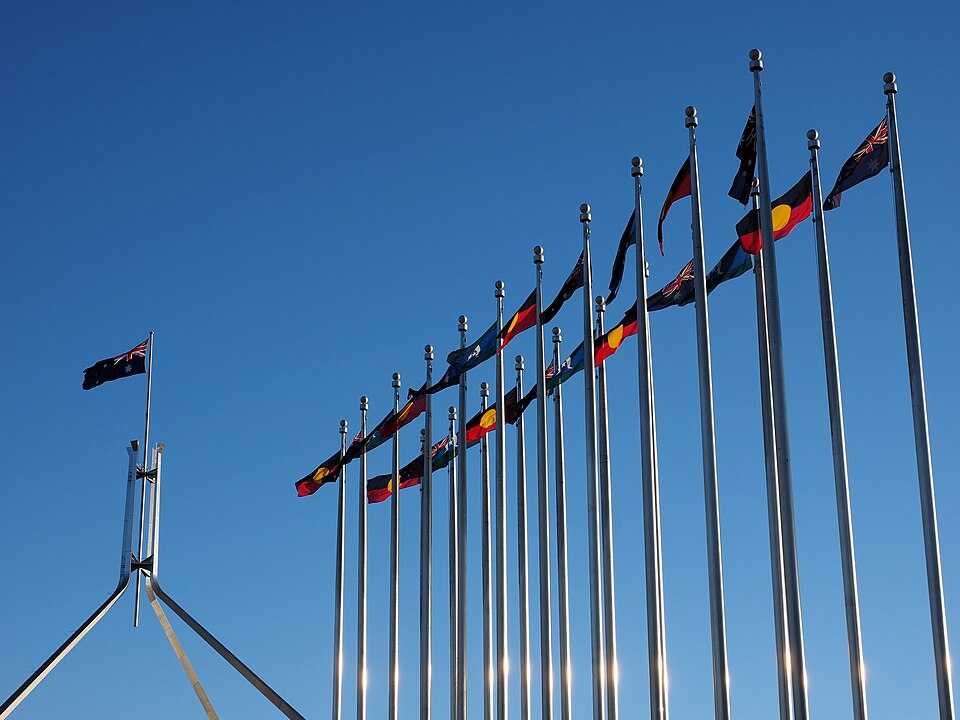By investing in key UN institutional mechanisms, Australia can contribute to upholding the rules-based order of the law of the sea and enhancing the ecological security of our oceans, leading to a more sustainable and secure Indo-Pacific region.
Ecological security is vital to a peaceful and stable Indo-Pacific Ocean. Climate change, through the triple threat of ocean warming, acidification and deoxygenation, adversely impacts the marine ecosystems that underpin the security of the Indo-Pacific Ocean. The transformation of the ocean system requires a corresponding transformation in the implementation of the global constitution for the oceans—the United Nations Convention on the Law of the Sea (UNCLOS). When UNCLOS was negotiated in the 1970s, however, the ocean impacts of climate change were largely unknown to the scientific community. This analysis examines how investment in key coordination mechanisms of the UNCLOS architecture can improve ecological security.
The new High Level Panel for a Sustainable Ocean Economy comprising 19 countries including Australia, France, Indonesia and Japan, can lead transformative governance for our ocean. Australia must reverse its poor performance in reducing carbon emissions and weak efforts on sustainability under the Sustainable Ocean Plan. All members of the High Level Panel for a Sustainable Ocean Economy can do far more to tackle our ocean’s greatest challenge: climate change.
On 21 May 2024, the International Tribunal for the Law of the Sea (ITLOS) was unanimous in their advisory opinion on climate change that UNCLOS State Parties have a stringent obligation to protect the marine environment from the deleterious effects of climate change. The Tribunal classified greenhouse gas emissions as “marine pollution”. Consequently, states are legally required under UNCLOS to take all necessary measures to prevent, reduce, and control this pollution of the marine environment.
To address these obligations, and to avert, reduce, and manage climate-induced ocean change, radical interventions are needed by governments and industry. How radical? And who should have oversight of these marine interventions? The ITLOS advisory opinion raises important questions in law regarding how states can fulfil their obligations under UNCLOS to protect and preserve the marine environment. Foremost, what changes to the governance architecture under UNCLOS are needed to ensure our region’s ecological security?
The complex threats to the marine environment from climate change demand coordinated transboundary responses to these impacts. The proliferation and overlap of institutions and legal instruments under UNCLOS, however, present a challenge to a coherent approach to marine ecological security. The threat of climate change, for example, requires a coherent cross-institutional approach from institutions as diverse as the International Maritime Organisation (IMO) for shipping; the Food and Agricultural Organisation (FAO) for fisheries; and United National Environment Programme (UNEP) for the marine environment. This transboundary response is dependent on the capacity for robust scientific research and the development and transfer of technology for innovation.
If states are serious about a rules-based order and protecting the maritime environment from climate impacts, deeper investment is needed in the institutional architecture of the law of the sea, including reinvigorating transparent and accountable UN coordination mechanisms. This is necessary as global powers push new norms that undermine the integrity of UNCLOS.
While the impacts of climate change are unevenly distributed globally, as are the capacity, resources and quality of state action to preserve the ecological security of the marine environment differences between Indo-Pacific states in marine scientific research and marine technology can slow innovation for transformative resilience, adaptation and restoration measures. There are a number of practical ways in which institutional mechanisms can address both the urgency of the problem and the varying capacities of states. What is needed is leadership from all members of the High Level Panel for a Sustainable Ocean Economy, using the most effective and practical means available to them for this purpose.
On the horizon are unilateral, industry and private NGO funded interventions that divert regulation of marine environment from oversight and accountability under the UN system. Despite the failure of UN-based treaties and mechanisms to curb climate change, the solution to combat its impacts nevertheless requires us to turn toward UN.
The value of existing UN mechanisms is that state action is enhanced through accountable systems within the rules-based international order under the UN system. They are also the most comprehensive coordination mechanisms for the collective action problem of global, transboundary issues like climate change. The mechanisms detailed below are robust, transparent and predicated on consensus-based best available science.
How can states be supported to fulfil newly stringent obligations under Part XII–—Protection and Preservation of the Marine Environment—for climate change impacts? First, all members of the High Level Panel for a Sustainable Ocean Economy can revitalise the currently under-utilised UN-Oceans, its principal mechanism for strengthening coordination and coherence in ocean affairs. It has 30 members, less than half of which are active. The Joint Inspection Unit of the UN review highlighted its members fail to operate as “one United Nations”, as resource constraints mean that where they overlap in competence they can often regard one another as rivals. The Division for Ocean Affairs and the Law of the Sea (DOALAS) is the appropriate authority to operate the UN-Oceans Secretariat. DOALAS’s recent leadership on the High Seas Biodiversity Treaty shows the division’s capability in marine protection, resilience and restoration.
Second, the Regional Fishery Body Secretariats’ Network (RSN) and Sustainable Ocean Initiative (SOI) Global Dialogue are also under-utilised. These cross institutional mechanisms have the convening power to build an integrated and harmonised approach to marine protection under Part XII. The RSN network between Regional Fisheries Bodies (RFB) and the SOI Dialogue between RFMOs and Regional Seas Organisations enhance institutional capacity to deliver urgently needed climate conservation measures. Both fora are crucial to facilitate the sharing of best practice and impactful innovations across ocean regions.
Thirdly, to combat climate change, deeper investment is needed in UNESCO’s Intergovernmental Oceanographic Commission (IOC). The IOC is mandated to promote international cooperation and to coordinate research and capacity-building to understand, manage and protect the marine environment. Historically, the IOC struggled with insufficient resources to adequately translate ocean science into integrated governance solutions; however, the revitalisation of IOC resourcing for the UN Decade of Ocean Science 2021-2030 signals a new era in assisting states in the fulfilment of Part XIII—Marine Scientific Research—of UNCLOS. This expanded role is pivotal for developing consensus-based ocean science and innovations to protect and restore the marine environment from climate impacts. In relation to Part XIV—Development and Transfer of Marine Technology—of UNCLOS, the IOC presents another under-utilised mechanism for the development and equitable transfer of marine technology as it relates to the protection, resilience and restoration of the marine environment for the benefit of all.
The performance of these coordination mechanisms depends on structure, resourcing, and member cooperation. Australia, as a founding member of the High Level Panel for a Sustainable Ocean Economy, should lead by investing in these coordination mechanisms to avert climate change impacts and enhance ecological security. This commitment can contribute to ecological security for a more sustainable and secure Indo-Pacific region.
Genevieve Quirk BSc (UQ), DULF (UParisIII-Sorbonne), MEnvLaw (ANU), PhD (UOW) is a Research Fellow at the University of Adelaide. Her PhD at the Australian National Centre for Ocean Resources and Security explored the evolution of regional ocean governance and diplomacy by Pacific States over 75 years. Dr Quirk’s publications examine the governance architecture implementing the United Nations Convention on the Law of the Sea focusing on the ecological security of the Indo-Pacific. Genevieve is on the editorial board of the journal Marine Policy, an East West Centre Visiting Fellow, Earth System Governance Research Fellow and a member of the IUCN World Commission on Environmental Law. Dr Quirk joined the Australian delegation to the UN in relation to SDG14 and the High Seas Biodiversity Treaty. In Brussels, Dr Quirk worked as a Policy Advisor on ocean governance reform in the European Union. Previously, she held the position of Lecturer at the University of Paris II (Pantheon-Assas) whilst also consulting to UNESCO.
This article is part of the Indo-Pacific Maritime Governance Expanded Network for Innovation and Education (GENIE), with La Trobe Asia and the Yokosuka Council on Asia-Pacific Studies (YCAPS). This program has received funding support from the Australia-ASEAN Council. Views expressed are solely of its author/s and do not represent the Australian government or partner country government.
This article is published under a Creative Commons License and may be republished with attribution.



